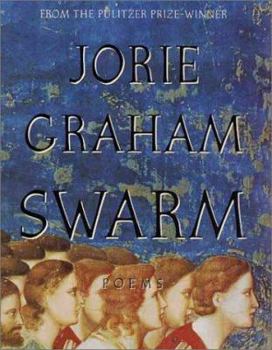Swarm
Select Format
Select Condition 
Book Overview
With Swarm, her first new collection since The Errancy, Pulitzer Prize-winner Jorie Graham has given us a book-length sequence of poems stunning in its sober encounter with destiny, eros, and law. The narrator, at times almost vertigo-ridden by the problem of who is addressed-whom there still is to address-negotiates passionately with those powers human beings feel themselves to be "underneath" God, matter, law, custom, the force of love.
To "swarm" is to leave an originating organism'a hive, a home country, a stable sense of one's body, a stable hierarchy of values -- in an attempt, by coming apart, to found a new form that will hold. The Roman Empire, its distillation in the Forum's remains, the Romantic imagination of that buried past ("underneath"), as well as the collapse of the erotic border between lovers' bodies, are persistent metaphors for the destabilization and reformation of the idea and sensation of personhood.
The "first" person and "enjambment" are characters in this book, as are the fragment, the gap, the sentence. And everywhere lovers seek to find the borders that must break as well as those that must at all cost hold. Clytemnestra await-ing Agamemnon, Calypso veiling Ulysses, Daphne accepting Apollo -- a variety of mythological characters reappear here, ea-ger to plead their stories into sense, desper-ate for some insight into the buried justice of natural law.
Related Subjects
Poetry





